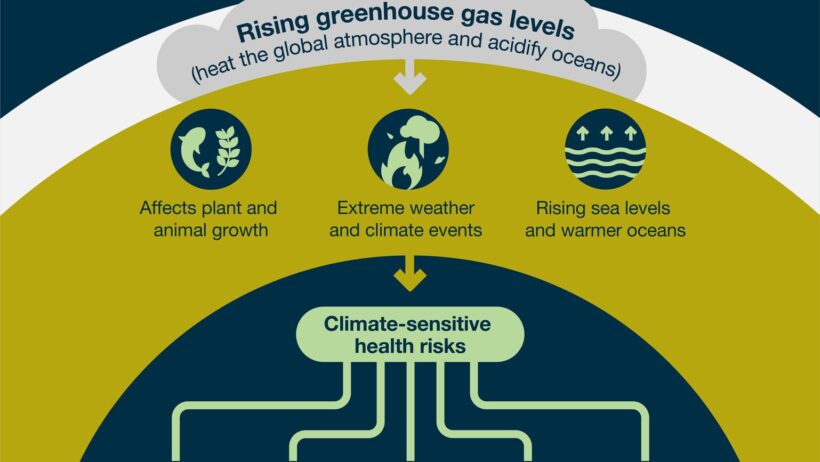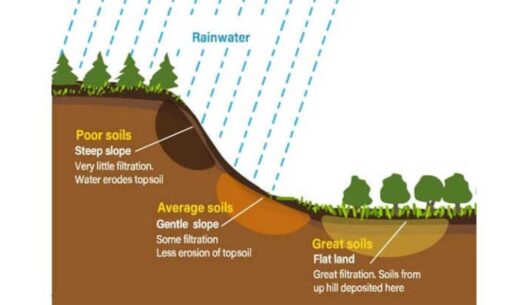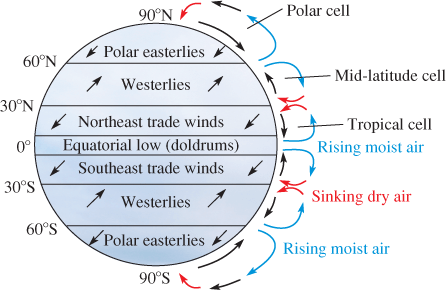Climate change is not merely a distant phenomenon looming on the horizon; it is a pressing reality that permeates our daily lives in myriad, often insidious ways. As the planet warms, the ramifications of climate change have become all-encompassing, affecting human health, economic stability, food security, and community dynamics. This transformation is more profound than many recognize, and understanding its pervasive influence is crucial for fostering a comprehensive awareness of our changing environment.
One of the most immediate impacts of climate change is its effect on human health. Temperatures are rising, making heatwaves more frequent and severe. Prolonged exposure to extreme temperatures increases the risk of heat-related illnesses such as heat exhaustion and heatstroke. Vulnerable populations, including the elderly and those with pre-existing medical conditions, face heightened threats. The escalation of temperatures also exacerbates air quality issues, contributing to respiratory diseases, and cardiovascular conditions. The increasing prevalence of allergens, such as pollen, can lead to heightened instances of asthma and other respiratory ailments, affecting daily activities and overall quality of life.
Moreover, the spread of vector-borne diseases is becoming more pronounced as changing climates expand the habitats of disease-carrying organisms. For instance, the geographical range of mosquitoes, responsible for transmitting diseases like malaria and dengue fever, has grown. These changes are not limited to tropical regions; they now encroach into temperate zones, placing new populations at risk. This shift necessitates an urgent reevaluation of public health strategies, demanding an approach that takes into consideration the unpredictable nature of disease transmission driven by climate variations.
Economically, the repercussions of climate change are vast and often catastrophic. Natural disasters, such as hurricanes, floods, and wildfires, are becoming more frequent and intense, causing widespread destruction that disrupts local economies. The financial burden is often borne by the most vulnerable, including low-income communities that may not have the resources to recover. Businesses face increased operational costs and uncertainty, affecting everything from crop yields to supply chain stability. The agricultural sector, in particular, is at risk. As droughts become more severe and seasons shift, farmers grapple with unpredictable growing conditions, leading to reduced yields and increased food prices.
Food security is intricately tied to climate change as well. The world’s population continues to grow, placing greater demand on already strained agricultural systems. Concurrently, climate change alters precipitation patterns and increases the frequency of extreme weather, resulting in crop failures and diminished harvests. As staple crops become harder to grow, food scarcity may become a critical issue, further exacerbating global inequalities. This reality not only affects individual households but can lead to broader socio-political instability as competition for dwindling resources intensifies.
In addition to health and economic challenges, climate change is fundamentally reshaping community dynamics. Displacement due to environmental changes, such as rising sea levels and heightened storm intensity, is forcing people from their homes, triggering migration and creating climate refugees. Communities that once thrived are now grappling with the psychological and social ramifications of displacement, leading to a breakdown of social structures and support systems. This phenomenon raises ethical questions about responsibility and assistance for those affected, further complicating the global response to climate change.
Conversation around climate change often evokes feelings of helplessness; however, it can also inspire action. A shift in perspective towards viewing climate change as an opportunity for innovation and collaboration is essential. Transitioning to renewable energy sources, such as wind and solar, not only mitigates the environmental impact but also promotes economic resilience by creating jobs in emerging sectors. Community initiatives aimed at sustainability, like urban gardening and local clean-up efforts, foster collective ownership and responsibility, demonstrating that change begins on the grassroots level.
Education plays a pivotal role in cultivating an informed citizenry capable of addressing climate change’s multifaceted challenges. By integrating climate-conscious principles into educational curricula, individuals can develop a deeper understanding of environmental issues and their implications. This awareness motivates proactive engagement in local, national, and global initiatives aimed at sustainability, such as advocating for policies that prioritize renewable energy adoption and conservation practices.
Furthermore, technology stands at the forefront of combating climate change. Innovations in smart agriculture, energy-efficient transportation, and sustainable materials have the potential to significantly lower carbon footprints. Encouraging investment in research and development for green technologies can catalyze the transition to a low-carbon economy. It is imperative that individuals and governments advocate for policies supportive of technological advancements that align with environmental stewardship.
In conclusion, climate change touches every facet of our lives, far beyond what is often discussed. From health challenges to economic instability, food security, community dynamics, and the opportunity for transformative innovation, its reach is profound and all-encompassing. As we confront the realities of our changing world, a collective acknowledgment of these interconnected issues is essential. Building resilience, fostering education, and embracing innovation are vital components in addressing climate change, ensuring a sustainable future for generations to come.





